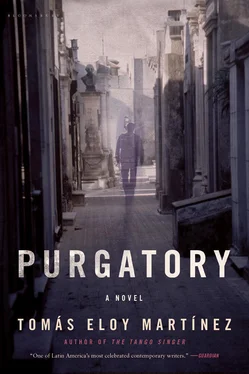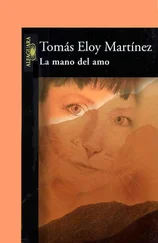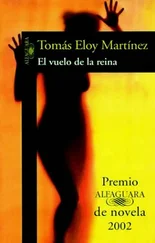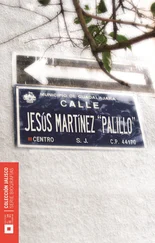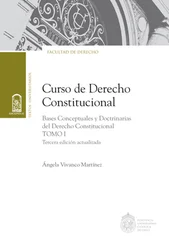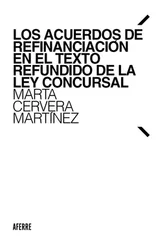‘The cancerous cells have surrendered,’ he declared, standing on tiptoe. ‘Here they are, encapsulated, the demons of her disease.’
‘You mean the cancer’s gone? Just like that, with no pain?’ asked Emilia. ‘Is that possible?’
Schoeder did not answer her. He took Dupuy’s arm and led him out to the gallery which ran around the house.
‘More than possible. It’s real. On Ganymede, all reality has its obverse. Your wife is there and she is also here.’
‘How will we know when Ethel is Ethel?’
‘You’ll never know,’ Schroeder responded, imperturbable. ‘Someone, on Ganymede, has divined in her a wisdom that warrants scientific study. I have no idea what Señora Dupuy will be like there. The Señora Dupuy who remains here will be just like the person who arrived with you: sweet, gentle, lost, with no memory. But healthy.’
‘What wisdom could they possible have seen?’ Dupuy asked sarcastically. ‘There must be some mistake. Poor Ethel always was terribly ignorant. She could just about read and pray.’
‘Make no mistake. Your wife is very precious, Dupuy, make no mistake. Look after her. She can go home with you now, all trace of her illness has been eliminated.’
‘You take care too, Schroeder. Your connection to Ganymede is also very precious, more perhaps than you imagine.’
‘I know. But I need take no precautions. I am protected by powers much greater than anything in this world.’
The afternoon is placid, even the Delaware does not seem to flow. The round, grey cloud that looks like a sheep still hovers. Everything persists in its essence, except Emilia. The memory of her mother has passed over her like a shadow and changed her. She has barely sipped the Chianti, barely touched the plate of pasta. All she wants is for Simón to talk to her. But Simón is still staring at the unmoving river, he does not speak. He seemed excited that morning when he told her the story of the writer with his slate, but then this expression returned, the indifferent expression that so reminds her of her sick mother. It’s unfair, Emilia thinks again, she does not even know the storms he has weathered. Seven years in an old people’s home. It is the sort of place she has only ever briefly visited, and even then, every time she left she found it difficult to shake off the feeling of anxiety. ‘So where was the retirement home, Simón?’ she asks. When he does not answer, she decides to tell him about the terrible dream she had two nights before she encountered him in Trudy Tuesday. She says:
‘I saw myself turning the corner onto an empty street. You were striding along on the opposite pavement, head down. “Simón!” I shouted. You crossed the street, came up to me, I gave you my hand. “What a pleasure to see you again, Señor Cardoso,” I said with a formality that seemed natural in the dream. “I don’t know whether you remember, but I was married to you.” “Oh, really?” you said. “That’s nice.” “I was married to you.” “I don’t know what else to say on the subject, señora. The dead have no memory. Now, I’m afraid I have to go, I’m in rather a hurry.” “Please remember,” I begged you. “Remember me, Señor Cardoso.” I made a gesture you didn’t understand. The deserted street filled with voices, with people jostling for space. My parents, Chela, the cartographers at Hammond, Nancy, the people from the hills above Caracas, James Stewart’s character from Vertigo and behind them a numberless, infinite multitude. All clamouring for my attention while I tried to stop you from leaving, but you had already left without saying goodbye. I’ve never been as surrounded by people as I was in that dream, and I didn’t like it. When I woke up, it occurred to me that the most unbearable loneliness is not being able to be alone.’
Before the night draws in, they head back to Highland Park in the Altima. Emilia drives in silence. She does not know what to say to her mute husband. She has already told him that first thing on Monday she will go with him to pick up his papers, his social security card, his driver’s licence if he has one. She should ask him where he left them, but not now. Now, as they cross the bridge over the Raritan, they see brightly lit stalls on the bank: tombolas, bingo, stalls selling crafts, a string of coloured Japanese lanterns swaying in the wind. ‘What do you say we go down and look at the stalls later?’ she asks. The only fair she is familiar with is the one they hold on Raritan Avenue on the Fourth of July. She never heard of one on the banks of the river, still less in November when the rains come unannounced. This has to be the first. If it fails, there won’t be another one. ‘Shall we go down and take a look?’ ‘Later,’ Simón says, ‘later.’
When they arrive at the apartment on North 4th Avenue, however, he shows no sign of wanting to go out again. He takes off his shoes, reheats the coffee from breakfast and toasts himself a slice of rye bread. As he sits down at the table, he looks as though he is about to speak. He reaches a hand out towards Emilia and strokes her. He says:
‘The writer with the slate who used to pace the corridors of the old folks’ home also told me a dream. It wasn’t a dream exactly, it was the memory of a recurring dream. A huge black dog was jumping on him and licking him. Inside the dog were all the things that had never existed and even those that no one even imagined could exist. “What does not exist is constantly seeking a father,” said the dog, “someone to give it consciousness.” “A god?” asked the writer. “No, it is searching for any father,” answered the dog. “The things that do not exist are much more numerous than those that manage to exist. That which will never exist is infinite. The seeds that do not find soil and water and do not become plants, the lives that go unborn, the characters that remain unwritten.” “The rocks that have crumbled to dust?” “No, those rocks once were. I am speaking only of what might have been but never was,” said the dog. “The brother that never was because you existed in his place. If you had been conceived seconds before or seconds after, you would not be who you are, you would not know that your existence vanished into nowhere without you even realising. That which will never be knows that it might have been. This is why novels are written: to make amends in this world for the perpetual absence of what never existed.” The dog vanished into the air and the writer woke up.’
Without Emilia asking him, he tells her where he has been all these years. She listens to the sentences fall as though she knows them, sentences that form stories that seem to be projected on a screen. It is the same deceptive impression she had as images rained upon her in her cell in Tucumán.
‘I don’t know how I ended up in the retirement home, and I don’t think it matters. The manager was expecting me. The building was surrounded by iron railings. Above the wooden door I saw an opaque glass canopy. All the rooms had high ceilings, beds without headboards and various crucifixes. All the rooms looked out onto courtyards with palms and ipe trees where the patients took the air and the sun. The courtyard I was to look after had large mosaics with ornate patterns and edging tiles. The men were separated from the women, and in the seven years I spent there, there was never any communication between the sexes. The men did not talk much, we played checkers, watched television. I saw you on the news once, you and your father.’
Emilia is surprised. ‘On the news? It can’t have been me.’
‘It was you,’ Simón insists. ‘It was during one of the World Cup matches, the first or the last. Your father was seated on the main stand behind the comandantes , who kept turning round to talk to him. You were on the grandstand opposite yawning. You were wearing a blue-and-white scarf and a white wool cap. You were yawning and laughing.’
Читать дальше
